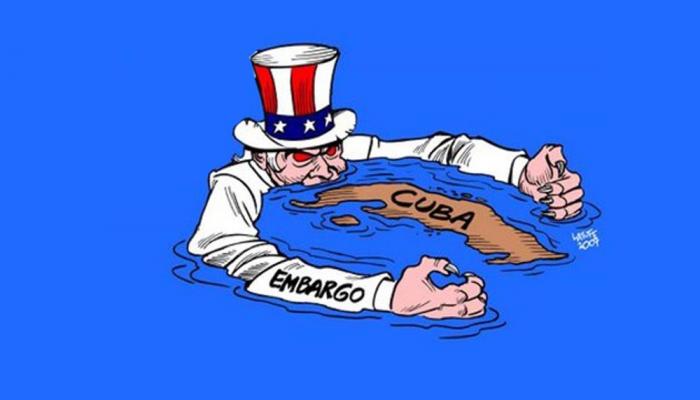The U.N. General Assembly on Tuesday takes up a resolution on “the necessity of ending the economic, commercial and financial embargo imposed by the United States of America against Cuba.” The assembly, for the 23rd straight year, is expected overwhelmingly to condemn the U.S. policy. Last year, the vote was 188-2, with Israel joining the U.S. in supporting the status quo.
The vote on October 28 in the United Nations will serve as a reminder of the long-standing U.S. policy to isolate Cuba as a means of encouraging moves toward democratic rule there, according to a report by Tampa Tribune staff writer Paul Guzzo.
But this time, a more conciliatory response may follow the U.N. vote.
U.S. Rep. Kathy Castor, the Tampa Democrat, said she has spoken with President Barack Obama on the issue and believes he may make a major announcement on relations with Cuba by April to show he is committed to normalizing relations — something he pledged to work toward during his first campaign for the White House.
“If you look at that vote, you realize that the U.S. is indeed the outlier on this issue,” Castor said. “It is time we recognize this and do more to bring our two nations together.”
April is when the seventh Summit of the Americas will be held in Panama — and for the first time, despite objections from the U.S. and Canada, Cuba will attend.
The president cannot lift the travel and trade embargo the U.S. imposed on Cuba, only Congress can sweep away the policy of isolating Cuba. But the president does have the power, Castor said, to make decisions that can chip away at the embargo’s goal of separation between the two nations — lifting the travel ban, for example, or taking Cuba off the U.S. list of State Sponsors of Terrorism.
Cuba was placed on the list in 1982 primarily because of its support of the Revolutionary Armed Forces of Colombia, known by its Spanish acronym FARC. But Cuba now is the host nation for peace talks between FARC and the Colombian government.
According to the State Department’s most recent Country Reports on Terrorism, there is no indication the Cuban government provides weapons or training to terrorist groups.
Cuba’s continued listing is an international embarrassment, said Albert A. Fox Jr., founder of the Tampa-based Alliance for Responsible Cuba Policy Foundation.
“The rest of the world mocks us for calling Cuba a terrorist state,” Fox said. “It diminishes the importance of the terrorist list. We are the only country that would call Cuba a terrorist nation and it is laughable. We are losing respect in the eyes of the world because of it.”
Fidel Castro, in fact, reached out to every U.S. president during his time in office, said Peter Kornbluh, author of the book, “Back Channel to Cuba: The Hidden History of Negotiations between Washington and Havana.”
“Castro sent proposals for dialogue to Nixon,” Kornbluh said. “He reached out early on to Reagan. Even at the height of conflict and with the hardest of Cold War presidents, he undertook a pragmatic effort to see if better relations were possible.”
Current President Raul Castro stands the best chance of high-level talks if Obama chooses to attend April’s Summit of the Americas.
“I hope the president does go,” Castor said. “It could be a defining moment for both countries.”
She noted that the U.S. already works with Cuba on a number of issues, including fighting drug trafficking and planning for oil spill cleanups.
Most recently, representatives of Tampa’s Florida Aquarium said they are working on a partnership in coral reef research with Cuba’s National Aquarium of Havana.
“The U.S. and Cuba have so much to gain by turning the page on these Cold War policies,” Castor said. “And all of our friends in the hemisphere are in favor of that happening.”


